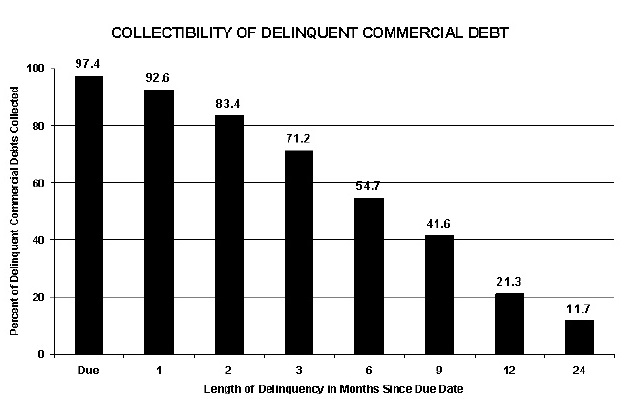Yes, you need a Written Credit and Collection Policy
Yes, you need a Written Credit and Collection Policy
Many companies do not have a written credit and collection policy because they believe it is more trouble than it is worth. One of the benefits of a written policy is that it can reduce bias and subjectivity in the credit decision process.
If your company is going to offer credit – it needs a written credit and collection policy. Taking the time and effort to develop a well written policy will help you make consistent credit decisions so that all customers will be treated equally. It can also be used as a training tool, and it can help ensure continuity in the credit department when key personnel are on vacation, ill, or leave the company.
A Credit and Collection Policy must be kept current and customized to the way your credit department operates. Some of the questions that a properly written credit and collection policy will answer include the following:
-Will a credit application be required?
-Does the application need to be signed and if so, by who?
-Will a personal guarantee be required and if so, who must sign it?
-Will financial statements be required from the customer and/or the guarantor?
-How will the creditworthiness of the customer and guarantor be determined and who will make that determination?
-Who will review the application and the information received from the credit investigation, and what will constitute an unacceptable credit risk?
-If a decision is made to open the account on the requested credit terms, how is the customer notified and by who?
-If a decision is made not to open the account or not on the requested terms, how is the customer notified and by who? Also, whose responsibility is it to send the proper declination letter?
-What forms of security will the company find acceptable to help reduce credit risk?
-What are your terms of sale?
-Will an extension of payment terms be considered and, if so, who must approve the extension and what form will this approval take?
-What is the credit limit authority of the credit manager?
-Who in management can override credit decisions and in what form will that override take?
-When and how frequently will customers be contacted about past due balances?
-At what point would an account be placed on credit hold?
-Who authorizes credit holds and who should be informed of the credit hold?
-How often will the credit application be updated?
-Who has the authority to place accounts for collection?
-What method will be used to calculate bad debt reserves?
-At what point will an account be considered for write off?
-What are the goals of the credit department?
-Who is responsible for responding to trade reference requests received from other creditors? It is also important to know what information to provide and what not to provide.
All credit department personnel need to understand and comply with the Fair Credit Reporting Act (FCRA) and the Equal Credit Opportunity Act (ECOA). Actual and punitive damages can result for violations of either of these Acts.
The Credit and Collection Policy should be shared with sales and upper management. A well written Credit and Collection Policy will make it clear to sales and upper management why certain decisions are made, and therefore minimize potential problems between the credit and sales departments.
Keep the policy up to date; include procedures to help minimize credit risk; make sure that the policy is not so vague that it can be interpreted differently by each person in the credit department; include a chain of command so that everyone knows what their credit granting authority is.
Having a well written and up to date credit and collection policy can help prevent problems and minimize the loss of customer goodwill.


